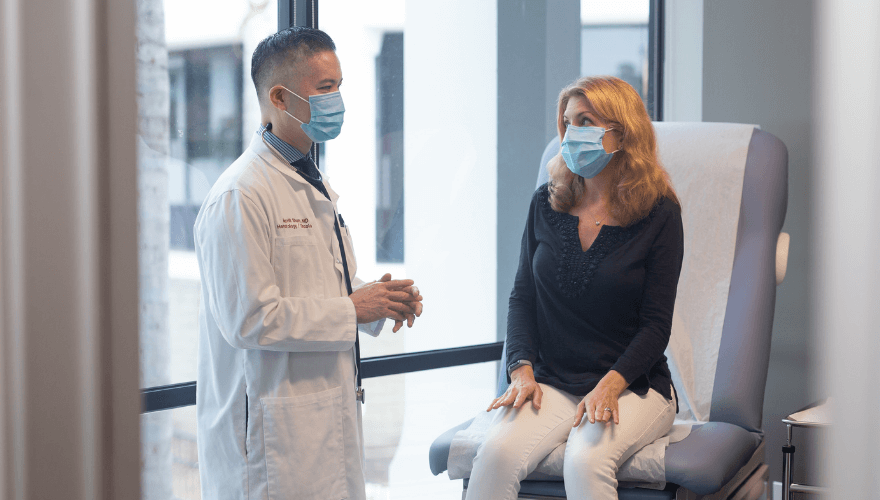September is Ovarian Cancer Awareness Month. According to the American Cancer Society, a woman’s risk of getting ovarian cancer during their lifetime is about 1 in 78¹. In 2021 alone, it’s estimated that over 21,000 women will receive a new diagnosis of ovarian cancer.
As the month comes to a close, we invite you to take a few moments to educate yourself, learn about the early signs and symptoms of ovarian cancer as well as how to be proactive.
- Signs and Symptoms
-
- Abnormal vaginal bleeding (Especially if you’re past menopause)
- Pain or pressure in the pelvic area
- Abdominal or back pain
- Bloating, feeling full too quickly, or difficulty eating
- A change in bathroom frequency, such as the urgent need to urinate and/or constipation.
2. Risk Factors for Ovarian Cancer Include:
-
- Being middle-aged or older
- Genetics: If someone in your immediate has had ovarian cancer
- Breast, colon, or uterine cancer diagnosis
- Endometriosis (Tissues that normally line your uterus grow on the outside)
3. Recent Findings
Recent studies have found that ovarian cancer starts in cells at the tail ends of the fallopian tubes, not necessarily in the ovary itself ² – this new information may open more research studies looking at preventing and screening for this type of cancer.
4. Risk Reduction
While there is no definite way to prevent ovarian cancer, below are some findings associated with lower risk.
-
- Having given birth and breastfeeding
- Taking oral contraceptives for 5 years or more
- Having had a tubal ligation (getting your tubes tied), both ovaries removed, or a hysterectomy (an operation in which the uterus, and sometimes the cervix, is removed)
5. Screening & Prevention
The Pap test only screens for cervical cancer and HPV, not ovarian cancer. Since there is not a specific screening test for gynecological cancers apart from cervical cancer, it is important to recognize the warning signs. Talk to your doctor if you are experiencing any of the symptoms associated with ovarian cancer.
For more information and resources on ovarian cancer, visit the American Cancer Society’s website.
References
- Key Statistics for Ovarian Cancer, American Cancer Society
- Ovarian Cancer Causes, Risk Factors, and Prevention, American Cancer Society
- Ovarian Cancer, Centers for Disease Control and Prevention (CDC)
With you through every phase of your cancer journey
Learn more about starting treatment at a location near you


